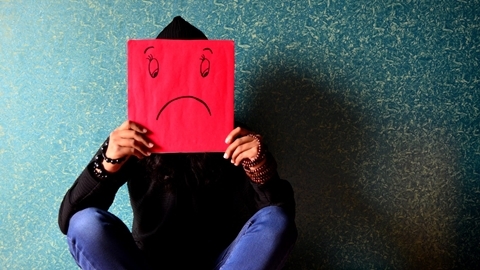Family support matters

There was a time, not that long ago, when being gay was considered a mental health problem — a “sociopathic personality disturbance,” to be exact. Being transgender was similarly treated as a psychological disorder.
Perception has changed dramatically since then. Roughly two dozen countries now recognize same-sex marriage — including the United States. Television shows centered around gay, lesbian, nonbinary and transgender characters have earned critical praise and popular appeal — from “Modern Family” to “Transparent.”
Our modern society has reached a state of acceptance we’ve never before seen. So why do so many LGBTQ+ youths still struggle with mental health issues?
In short, it’s complicated.
Mental health problems, including suicidal thoughts or actions, run high among this population, compared to their straight counterparts. (Keuroghlian, 2014, p. 3).
That’s not because of some inherent biological differences between LGBTQ+ youths and their straight counterparts. In fact, the majority of LGBTQ+ youths are well-adjusted and mentally healthy (Institute of Medicine, 2011).
So when mental health problems do arise among this population, the cause is, more often than not, societal. We are social creatures, and life is harder when our friends and families reject or outright attack us. In fact, the number one factor impacting LGBTQ+ young people's well-being turns out to be parent and family acceptance.
The studies on family support show that specific steps can be taken by families to protect their children from the increased risks facing LGBTQ+ youth.
Featured Content
Explore what researchers have learned about the impact of family acceptance vs. rejection on LGBTQ+ youth in this comprehensive report from Cornell University.
References:
What We Know Project, Cornell University, “What Does the Scholarly Research Say about the Link Between Family Acceptance and LGBT Youth Well-Being?” (online literature review), 2016. https://whatweknow.inequality.cornell.edu/topics/lgbt-equality/%20what-does-the-scholarly-research-s...
Institute of Medicine (US) Committee on Lesbian, Gay, Bisexual, and Transgender Health Issues and Research Gaps and Opportunities. (2011). The health of lesbian, gay, bisexual, and transgender people: Building a foundation for better understanding. National Academies Press, 4. https://www.ncbi.nlm.nih.gov/books/NBK64808/
Keuroghlian, A.S., Shtasel, D., & Bassuk, E. L. (2014). Out on the street: A public health and policy agenda for lesbian, gay, bisexual, and transgender youth who are homeless. American Journal of Orthopsychiatry, 84(1), 66-72. https://www.ncbi.nlm.nih.gov/pmc/articles/PMC4098056/
